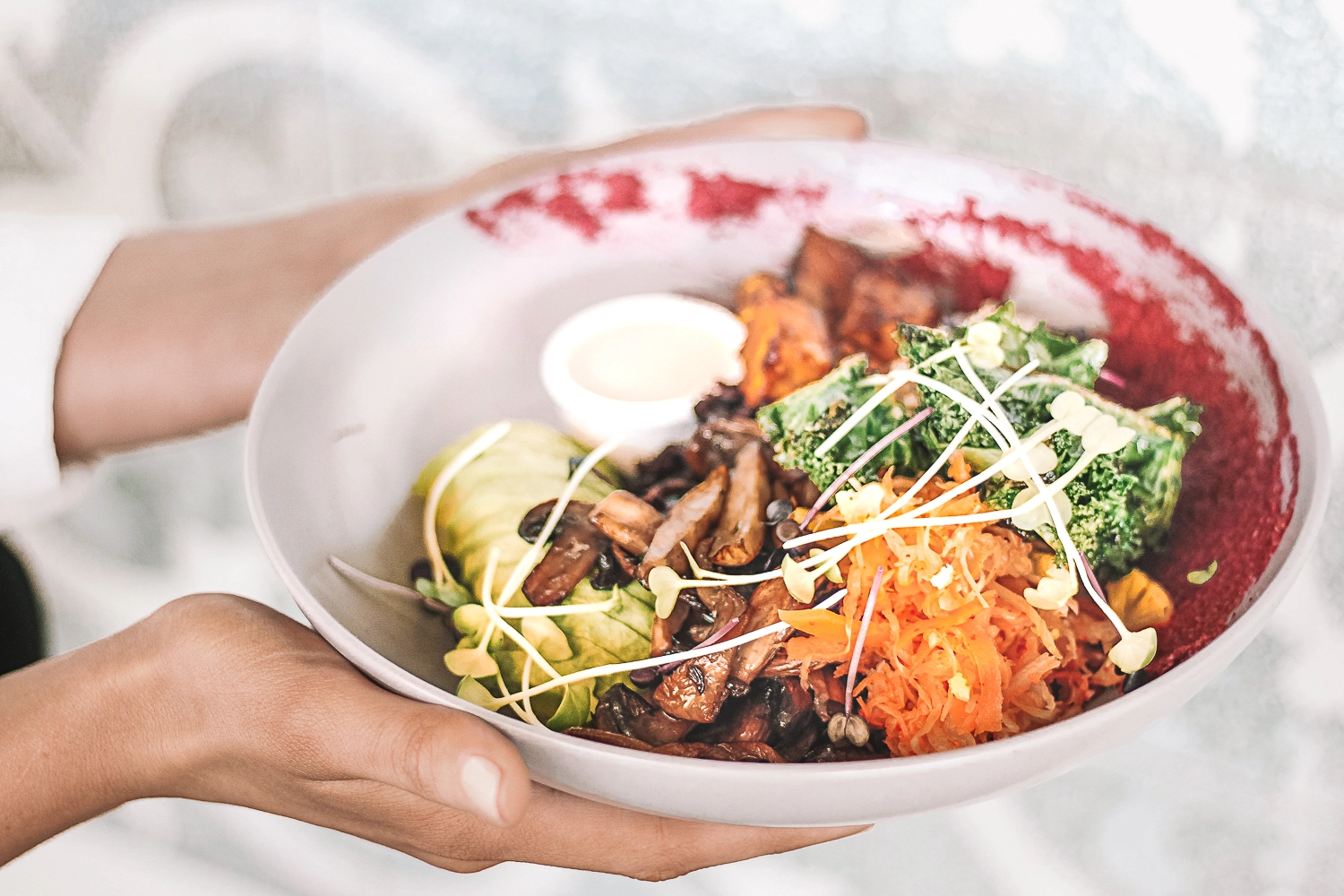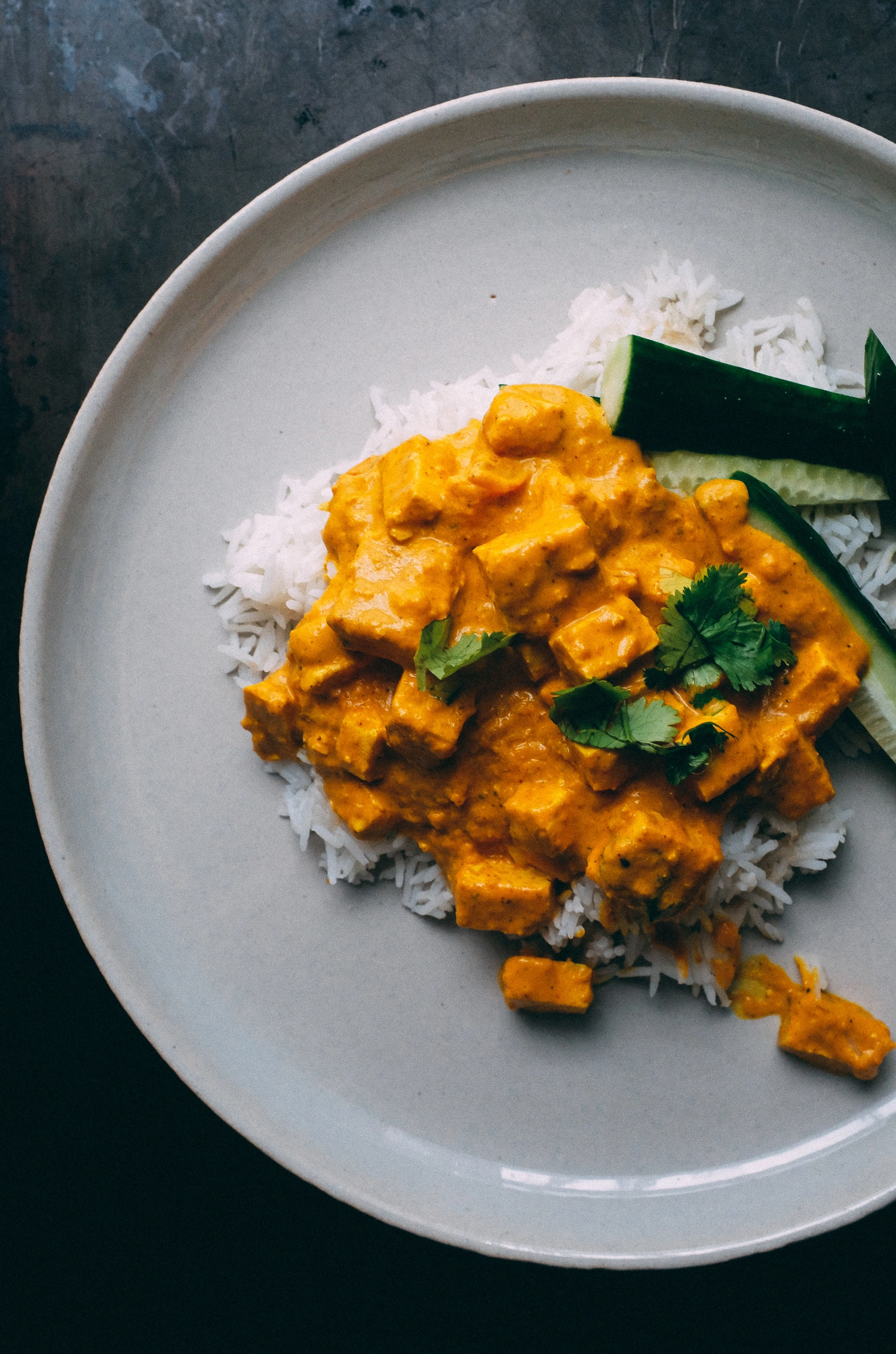Healthy Living—Get the most out of your plant-based diet
Following a plant-based diet is a great way to improve your health and take one for the planet. Large bodies of research show us the health benefits of going vegetarian or plant-based are numerous—from reduced body fat, lower blood pressure and lower cholesterol to protection against heart disease and certain cancers. Gut health is positively affected too, with those on a plant-based diet reaping the benefits of a more diverse gut microbiome and better bowel function, as the dietary focus is placed on fibre-rich foods and a larger variety of fruits, vegetables and legumes.
Increased energy, less mental fatigue and ‘fogginess’, better sleep and improved digestion are a few of the physical and mental improvements those who go plant-based will quickly notice. However, some will find these positive changes can be short-lived. Why? Whilst the increase in plant foods floods our bodies with antioxidants, fibre and anti-inflammatory compounds, the possible medium to longer term deficiency in nutrients such as B12, iron, zinc and essential fatty acids can disarm our immune system and fail to support our bodies requirements for energy, digestive function, growth and repair, neurotransmitter synthesis (mood health) as well as reproductive health. These deficiencies can be avoided if we get savvy about knowing what plant foods offer these nutrients, eating these foods each and every day and knowing when we may need to supplement. Understanding your body, the stage of life you are currently in and thus your own unique set of needs is also a vital part of the process.
Focus on the key players
Depending on whether your version of a plant-based diet includes some, or strictly no dairy, eggs, seafood or meat, filling up mostly on foods from the plant kingdom means we do need to be mindful of certain nutrients that are more readily available from animal foods, and come in smaller amounts from plants. This includes iron, vitamin B12, calcium, omega 3 essential fatty acids, zinc and choline. Do your research and become familiar with what foods are the best sources of these nutrients, making sure you keep a source of each in your daily diet. Plant-based sources of iron include lentils, black beans, edamame or organic tofu, spinach, kale, parsley, spirulina, pumpkin seeds and molasses. The non-heme iron that is found in plant foods is not as readily absorbed by the body as heme iron that is in meat, so it’s ideal to include more than one iron-rich plant food in your diet every day to maximise your intake. Foods high in omega 3’s include chia seeds, hemp seeds, flaxseeds, walnuts and seaweed—particularly algal oil, which is becoming more readily available as a concentrated supplement. Vitamin B12 and choline deserve a mention here, as both are found only in small amounts in plant foods and may warrant supplementation for many on a strictly plant-based diet, particularly during certain life stages (reproductive years, pregnancy and breastfeeding).
Keep the carbs in check
At times following a plant-based diet can feel a little similar to carb-loading—when eating out or when you haven’t meal-planned properly, often the substitute for meat or animal products ends up being a starchy carb. Complex carbohydrates are far from bad, however if your diet is mostly carb-based and you aren’t getting sufficient protein and healthy fats then you’re doing your body a big disservice. Protein is essential for maintaining energy, supporting immune health, synthesising hormones and giving you energy and vitality – you won’t be feeling or functioning at your best without adequate daily intake. If it feels like you’re going a little heavy on the bread, pasta, rice and hot chips then it might be time for some fresh inspiration and new recipes to try out. Look for meals and snack ideas that focus on plant-based protein as the star ingredient. Think lentils, beans, organic tofu, tempeh, nuts and seeds and pseudo-grains like quinoa and buckwheat. And on those days where you know you aren’t getting enough, try a clean protein powder based on rice, pea or hemp (or ideally a combination of them)—*I recommend Amazonia Raw or The Beauty Chef Plant-Based Protein Powder.
Mix it up
Falling into familiar habits when it comes to our diets and what we eat on the regular is common whether you’re plant-based or not. It’s important to put the effort in when following a mostly-plant or vegetarian diet and mix up what’s on your plate, as you want to ensure you’re getting the necessary nutrients from a variety of foods. Look out for new ingredients each week when you do your market or grocery shop and educate yourself on what foods provide your key macro and micronutrients. Rotate your grains and carbs so you’re not always eating rice or wheat—try quinoa, buckwheat (a personal favourite in my household are soba noodles) or amaranth, and mix up your flours in baked goods to include coconut flour, almond meal, brown rice flour or besan flour. Swap your standard tofu for its fermented cousin tempeh and mix up your legumes—black beans are great in Mexican-style dishes, split peas in soups or stews and lentils with brown rice for the perfect winter dahl. Keeping your snacks rich in protein and healthy fats will help keep you satisfied for longer—try apple or banana sliced and spread with ABC nut butter, coconut yoghurt with a handful of sugar-free granola, a nut and seed mix along with some fresh blueberries or some homemade hummus with seeded crackers.
Know your body
One of the most important things to remember when following any form of diet or specific way of eating is that no two bodies are the same—we each have a unique set of requirements and different health pictures. Not to mention the variability of nutrient requirements dependent on age, and stage of life that a person is at a growing child has a different set of nutritional needs as compared to a grown man, as does a pregnant woman or an athlete! So this is where getting really familiar with YOUR body, your needs, the demands you place on your body and the stage of life that you’re at is paramount. Listen to what your body is telling you, tune in to your unique set of needs and then get educated about nourishing yourself to reach and stay in optimal health.
Check in and supplement if necessary
A plant-based diet can be a healthy long-term option provided you are being vigilant with your key nutrients, keeping the plant-based protein high on the priority list and adding in variety regularly. However, often some supplementation with B12 and iron is necessary, especially for women of reproductive age as we lose these important nutrients monthly and need to be diligent at topping them up. Checking in with your GP, Naturopath or healthcare provider regularly is important so you can keep track of your iron and B12 stores and follow up on any changes in your health that you may have noticed. Each individual body is unique and has different requirements, so please don’t self-prescribe – reach out and check in with a qualified practitioner so you can get the right information for your body and your needs, and support yourself on your plant-based diet long term.
* This information is for general use only—please check in with your health care provider for specific nutrient requirements based on your individual health or book an appointment with Claire. Recommended products are not sponsored.
Image Credit — Photo 1 by Maddi Bazzocco
Image Credit — Photo 2 by Nathan Dumlao
Image Credit — Photo 3 by Charles Deluvio





